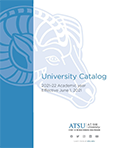Certificate in Public Health, Emergency Preparedness,
and Disaster Response
This four-course public health certificate program will prepare students to play a role in public health emergency response. It will provide students with an understanding of emergency management systems, introduce them to various forms of disasters and public health threats, as well as to various response skills essential to public health. Students who successfully complete this certificate will also earn three FEMA certificates and a certificate in contact tracing.
This certificate program can be completed in as little as six months (two courses per term), or 12 months (one course per term). The certificate is an online program offered through the Public Health department at A.T. Still University’s College of Graduate Health Studies (ATSU-CGHS).
Program essentials
Certificate in Public Health, Emergency Preparedness, and Disaster Response Curriculum Overview
The online Certificate in Public Health, Emergency Preparedness, and Disaster Response curriculum provides comprehensive training that develops leaders who are fully prepared to address society’s healthcare issues. All core courses are taught by ATSU’s exceptional, doctoral-level faculty, which includes former top national public servants, industry leaders and academic innovators in public health.
Guidelines for MPH alumni and current students:
Alumni of ATSU-CGHS’s Master of Public Health (MPH) program in the last seven years are able to receive credit for their Introduction to Public Health and Epidemiology courses from when they completed their master’s degree. Any alumni who completed those courses more than seven years ago will need to retake the courses.
Students must take Global Health Issues in 20-21SP or later, as the course is being revised specifically for the certificate program.
Students who completed Epidemiology prior to 20-21SP, are not required to retake this course, but need to understand if they choose not to, they will not receive the contract tracing part of the certificate curriculum (certification available).
Requirements
- Application:
- Completed and signed admissions application along with a nonrefundable application fee.
Academic:
- An accredited bachelor’s degree from a university recognized by the Council for Higher Education Accreditation. Applicants who received their qualifying degree from a university outside the United States will have to provide a degree equivalency evaluation.*
- Official transcript from the qualifying degree-granting institution. For students using VA benefits transcripts for all institutions attended are required.
- Minimum Cumulative Grade Point Average (CGPA) of 2.5 (on a 4.0 scale) at the qualifying degree institution.
Elements of Success:
- A current resume
- Completion of an essay
- English Proficiency **
- Meet technology requirements***
*Applicants who have graduated from a foreign college or university should submit acceptable evidence of U.S. degree/course equivalency. All course work taken at the foreign institution must be evaluated for American institution equivalence by one of the following services:
- World Education Services P.O. Box 5087 Bowling Green Station New York, NY 10274-5087 p: (212) 966-6311 f: (212) 739-6139 info@wes.org
- Educational Credential Evaluators, Inc. P.O. Box 514070 Milwaukee, WI 53203-3470 (414) 289-3400
- American Assn. of Collegiate Registrars & Admissions Officers One Dupont Circle, NW, Suite 520 Washington, DC 20036-1135 (202) 293-9161
- Josef Silny & Associates, Inc. International Education Consultants 7101 SW 102 Avenue Miami FL 33173 p: (305) 273 -1616 f: (305) 273 -1338 info@jsilny.com
- Intl. Education Research Foundation, Inc. PO Box 3665 Culver City, CA 90231-3665 (310) 258-9451
**Applicants are required to demonstrate proficiency in English when applying to A.T. Still University’s College of Graduate Studies. Written and spoken proficiency in the English language may be demonstrated by one of the following options:
- Option 1 - English is your first language.
- Option 2 - Graduated from a regionally accredited four year college/university in the United States with a BA/BS or graduate degree.
- Option 3 - You are demonstrating your English proficiency by submitting acceptable scores on the Test of English as a Foreign Language (TOEFL).
Accepted test types for CGHS are:
The Computer Based Test (CBT), Internet Based Test (iBT), or the Paper Based Test (PBT) are accepted. The following are the minimum required score based on test type:
- CBT - minimum total score of 213
- iBT - minimum total score of 80
- PBT - minimum total score of 550
The TOEFL is administered by TOEFL/TSE Services, P.O. Box 6151, Princeton, NJ, 08541-6151, USA 609. 771.7100. A.T. Still University’s institutional code is 0339. Please be sure to include this information when you submit your application packet. TOEFL Educational Testing Services P.O. Box 6151 Princeton, NJ 08541-6151, 609.771.7100
***ATSU technology requirements
Tuition
Review tuition and fees for the Certificate in Public Health, Emergency Preparedness, and Disaster Response program. Please note tuition and fees are subject to change.
Jeff Chaffin, DDS, MPH, MBA, MHA, is an assistant professor in the Master of Public Health – Dental Emphasis program at A.T. Still University. Dr. Chaffin graduated from the University of Tampa in 1988, and received a doctor of dental surgery from the University of Nebraska in 1992, a master’s in public health from the University of Michigan in 2000, a master’s in business administration from the University of Texas at San Antonio in 2006, and a master’s in healthcare administration from Baylor University in 2006. Dr. Chaffin is a diplomate of the American Board of Dental Public Health, currently serves as the immediate past president of the American Board of Dental Public Health, a Fellow of the American College of Healthcare Executives, a Fellow of the International College of Dentistry, a member of the Official Order of Military Medical Merit (O2M3), and he holds the Surgeon General’s “A” designator for excellence in Dental Public Health.
Dr. Chaffin spent 21 years on active duty in the US Army serving as the chief of dental for TRICARE. His research interests focused on dental patient satisfaction and military dental readiness. Current research work is focused on dental sealants and factors associated with dental care utilization.
Gregory Loeben, PhD, MA, is an associate professor and the MPH practicum coordinator in A.T. Still University’s College of Graduate Health Studies. Previously, Dr. Loeben served as an associate professor and coordinator of bioethics at Midwestern University in Glendale, Ariz., where he created and ran a master’s degree program in medical ethics. Prior to Midwestern, he was coordinator of the Outreach Program at the University of Pennsylvania Center for Bioethics. He received a bachelor’s in both philosophy and environmental studies from the University of Vermont, and a master’s and doctorate in philosophy from the University of Arizona.
Dr. Loeben has served as a consultant or advisor on medical ethics issues to numerous healthcare institutions. He is on the board of the Arizona Bioethics Network and serves as a consultant He has an extensive experience in clinical ethics consultations, working with healthcare ethics committees, and research institutional review boards. His current research interests include a variety of issues in public health ethics, clinical ethics consultation, and online ethics education. More specifically, Dr. Loeben is interested in how professional and conscience based refusals to participate in an apparent medical activity should be understood. He is also interested in developing tools to measure the effectiveness of animal therapy programs for special needs populations.
Mary-Katherine McNatt, DrPH, MPH, MCHES, CPH, COI, is department chair and associate professor of the Master of Public Health program at A.T. Still University-College of Graduate Health Studies.
Dr. McNatt holds a doctorate of public health with an emphasis in social and behavioral sciences from the University of North Texas Health Science Center in Fort Worth, a master’s in rural public health from Texas A&M University Health Science Center School of Rural Public Health, and a bachelor’s in biology from Texas A&M University with a minor in chemistry. She is a master certified health education specialist, is certified in public health, and is a certified online instructor.
Dr. McNatt has extensive experience in epidemiology, program planning, community health, and public health preparedness; with experience working in the non-profit sector, government sector as well as in academia. She has been teaching online since 2007, and has completed and obtained her online teaching certificate from Sloan-C, COI from LERN, and is currently taking courses from Quality Matters.
Prior to becoming a full time academic, Dr. McNatt was the first full-time pandemic program planner in the state of Texas at Dallas County Health and Human Services. Key activities included enhancing existing surveillance systems for seasonal influenza, educating community leaders through created lectureships and programs, and provide consulting services for agencies in developing their own business continuity and continuity of operations plans. Prior to her employment for Dallas County she worked as a community health facilitator for Catholic Charities in the Diocese of Fort Worth, focusing on community health education and outreach.
Dr. McNatt has published multiple research articles on pandemic planning and emergency preparedness, and on social media in educating diverse populations; she also presents regularly at national conferences on rural border health issues, health equity, social media and water scarcity as a public health issue, this includes presentations at American Public Health Association and National Rural Health Association. She has served as a national spokesperson for the American Heart Association as well as former chairman of the American Heart Association Cultural Health Initiatives Tarrant County Task Force. She is a member of the National Rural Health Associations Government Advisory Council, National Rural Health Association’s Health Equity Board, and serves on the Association of Schools and Programs of Public Health Education Committee, Diversity and Inclusion Committee and Best Practices in Pedagogy subcommittee. She is also a CPH question writer.
Dr. McNatt’s research interests include cultural health disparities, rural /border health issues, maternal and child health, public health preparedness, and special medical needs populations.
In her spare time she enjoys riding horses and traveling. Dr. McNattlives in Texas with family.
Marisa Hastie, EdD, MS, ACSM-EP, PN-1, FACSM is the Dean of the College of Graduate Health Studies at AT Still University. Dr. Hastie received her doctor of education from George Fox University (2013), her master of science in exercise and sport science with an emphasis in biomechanics from the University of Oregon (2003), and her bachelor of science in exercise science from Gonzaga University (2001). She is a fellow of the American College of Sports Medicine (ACSM) and is a certified Exercise Physiologist.
Prior to joining ATSU, she was a Professor of Exercise Science and Program Chair for the Exercise Science Program at Lasell University (Newton, MA). Dr. Hastie also served as the Faculty Fellow for the Fuss Center for Research on Intergenerational Education and Aging and received the deWitt Excellence in Educational Leadership Award from Lasell University. Dr. Hastie served as Faculty Chair of the University’s governance system.
Dr. Hastie has served in several leadership roles at the regional and national level of the ACSM, which include her current roles on the Professional Education Committee at the national level and as the President-Elect for the New England chapter. Her research interests have included exploring the connection between lifelong physical activity and long-term health outcomes, the relationship between exercise training and cognition, and the effects of discrimination experiences on health-related coping behaviors.
Dr. Hastie has extensive experience in online program development, teaching, and assessment. She developed an online Master of Science in Nutrition for Human Performance program and has 18 years of experience in both synchronous and asynchronous teaching formats. She became an educator because she strongly believes in the development of the whole student as a crucial responsibility of higher education institutions.
Jaana Gold, DDS, PhD, MPH, CPH, is a professor at A.T. Still University College of Graduate MPH program, and an adjunct clinical associate professor at the University of Florida College of Dentistry, in the Department of Community Dentistry and Behavioral Sciences. Dr. Gold received her DDS degree from the University of Oulu, Finland in 1992; a doctorate degree in preventive dentistry in 2005; and completed advanced education program in dental public health at NYU Langone Hospitals in NYU in 2019. She brings over 25 years of experience in teaching, research, and practice in dentistry.
Dr. Gold’s research interests include caries management and prevention, oral health promotion, dental education, and dental public health. She has published original research in peer-reviewed journals and presented in several international and national conferences. She is teaching dental epidemiology, evidence-based dentistry, dental research, global health issues, and dental public health, and she serves as an advisor for MPH students and dental public health residents. Dr. Gold is a member of several national and international professional organizations; serves in several national and institutional leadership roles and continue to conduct research and promote and advocate for oral health in underserved populations.
University Catalog

Review the University Catalog to learn more about the program and university. Read detailed course descriptions and obtain answers to many of your questions regarding application and tuition.
A.T. Still University of Health Sciences is accredited by the Higher Learning Commission
230 S. LaSalle Street, Suite 7-500,
Chicago, IL 60604
Phone: 800.621.7440 | Fax: 312.263.7462
Email: info@hlcommission.org
Certificate in Public Health, Emergency Preparedness, and Disaster Response program faculty
Application
Review application deadline dates
For additional information contact an Enrollment Counselor:
877.626.5577 or cghsonlineadmissions@atsu.edu
Request Information
Have a question for ATSU?
Submit an inquiry for more information on your program of interest.
Missouri Campus
800 W. Jefferson Street Kirksville, MO 63501
877.626.5577
cghsonlineadmissions@atsu.edu






